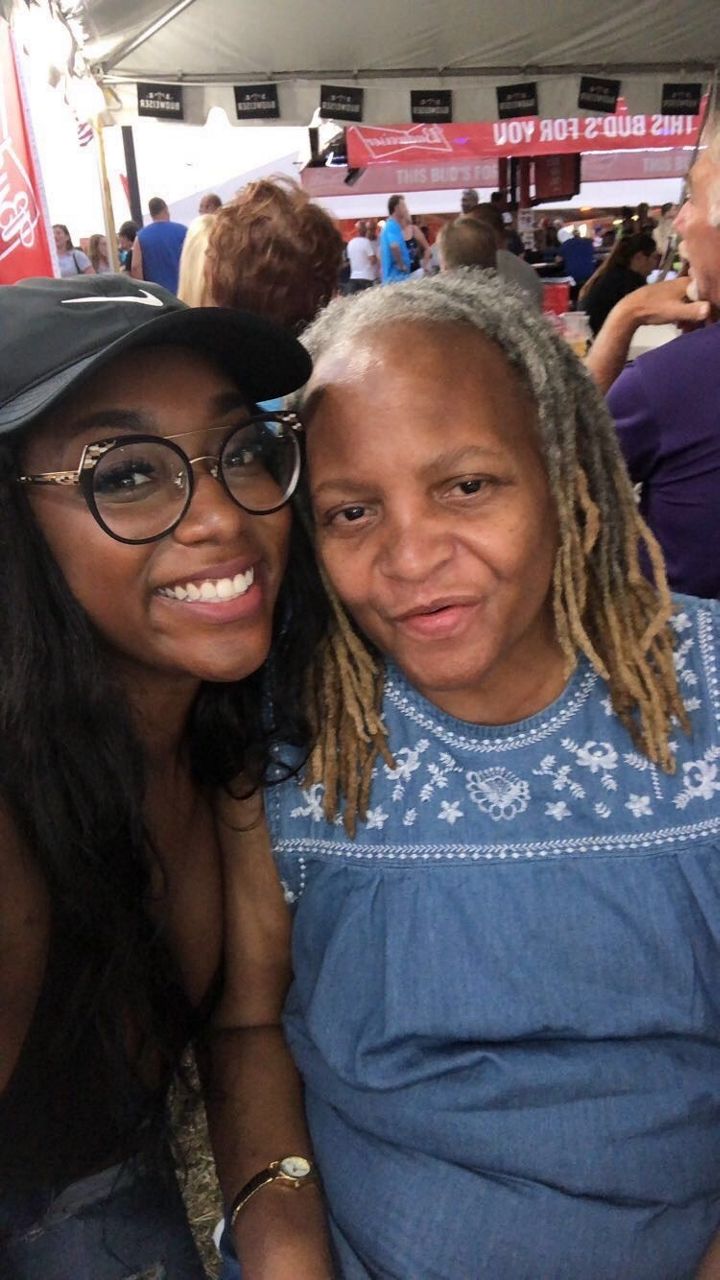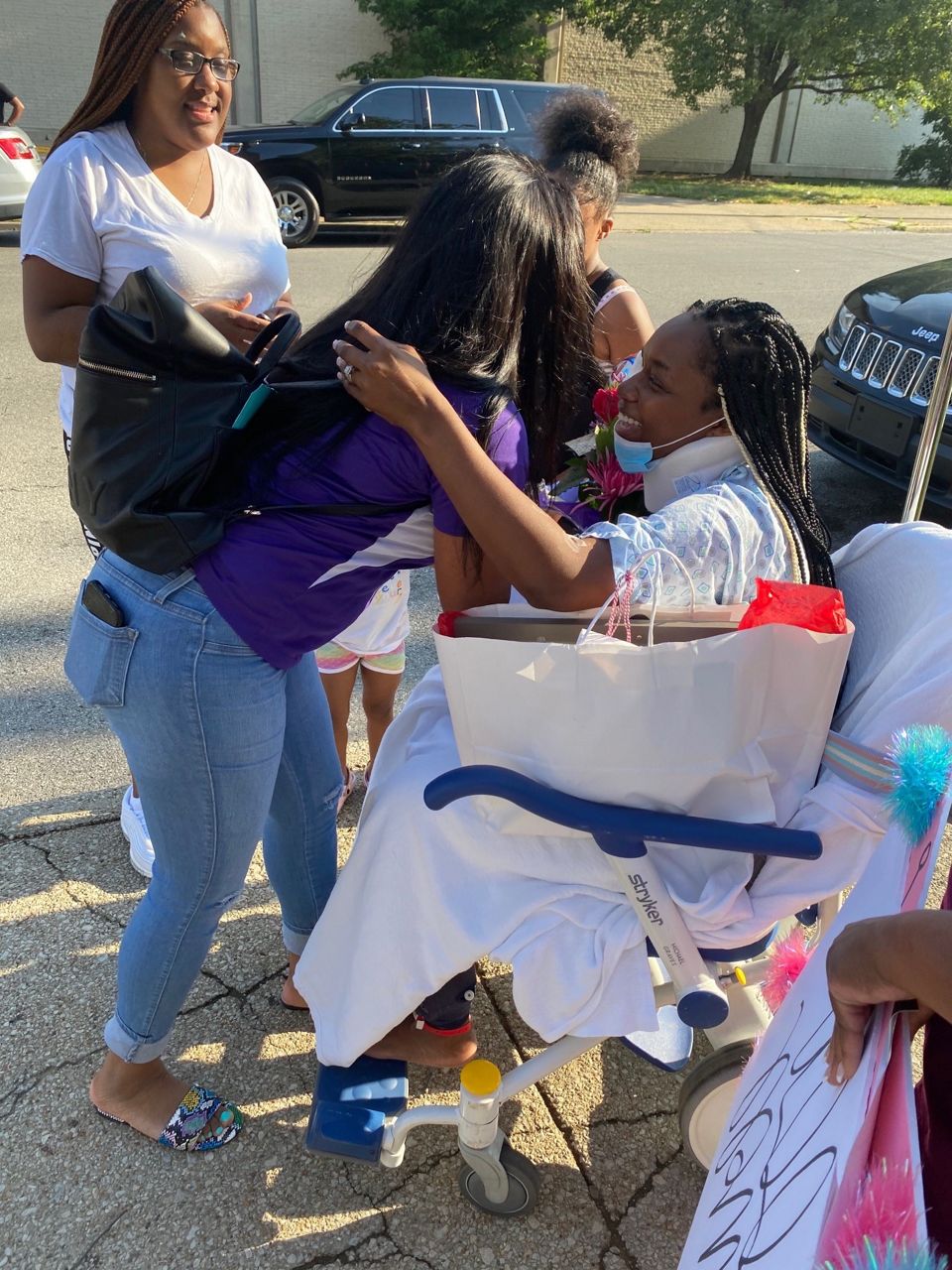This is precisely why you NEVER get your neck adjusted. Your chiropractor has no clue how stiff your arteries are and whether there is plaque in them ready to be torn free. Has your doctor calculated the physics and knows EXACTLY the force not to rip the arteries or plaque apart? For a brief period of time, chiropractic applies 58% to 87% of the force of a suspended hanging. Do not listen to your chiropractor pooh-poohing this risk. Calculations here:
Chiropractic force
35-Year-Old Recovering After Chiropractic Adjustment Sparks Stroke
LOUISVILLE, Ky. — Katie Brooks said it can be frustrating trying to do everyday tasks like walking and putting on makeup. Her life was turned upside down four months ago when she suffered a stroke at just 35-years-old. She said she never envisioned this happening to her, especially not how it did.

It all started when an injury sparked a trip to the chiropractor in June. When the chiropractor adjusted her neck, doctors said an artery was dissected sparking a stroke.
"Probably within two minutes, my right side started to go limp. I started drooling,” Brooks said.
Doctors with UofL Health say stroke caused by an artery dissection during a chiropractic adjustment is rare, but it is something they see. The National Center for Biotechnology Information reports vertebral artery dissection is the cause of around 2% of all ischemic strokes, but that same report finds the number rises to 10-25% for patients under 45.
The Centers for Disease Control and Prevention says stroke is now the fifth leading cause of death in the United States, down from having been the third leading cause of death. Dr. Michael Haboubi, a neurologist at UofL Health, said that decrease is likely because treatment is getting better and the public is more aware of stroke symptoms now, so people get life-saving treatment sooner.
“1.9 million brain cells, neurons, die every minute that a large vessel stroke is going on, so getting to the hospital as soon as possible and getting treatment as soon as possible is extremely important,” Dr. Haboubi said.
Since early treatment is so important, doctors want everyone to be able to recognize the signs and symptoms. Experts use the acronym "Be Fast." You should seek immediate care if you have sudden changes to any of the following:
- Balance: Does the person have a sudden loss of balance?
- Eyes: Has the person lost vision in one or both eyes?
- Face: Does the person's face look uneven?
- Arms: Is one arm weak or numb?
- Speech: Is the person's speech slurred? Does the person have trouble speaking? Does the person seem confused?
- Time: If someone has any of those symptoms call 911 immediately.
Every minute can make a difference when someone has a stroke. Brooks recalls what it was like.
“Until I got to the emergency room, I was scared to close my eyes. I thought if I did, I wasn’t going to wake back up. Until they gave me that clot buster, I didn’t think I would have made it. I don’t think I would have recovered like I did,” Brooks said.
That initial life-saving treatment is just the start of what is often a long road to recovery. Many patients head to Frazier Rehab soon after having a stroke. Dr. Daryl Kaelin said about 25% of the patients at Frazier Rehab have had a stroke.

“The deficits that come from strokes including weakness, balance problems, language problems, thinking problems, and vision problems can all be rehabilitated getting people back to their fullest level of function,” Dr. Kaelin said.
He said it can take a year to a year and a half for stroke patients to make a full recovery. Brooks said it can be difficult to go through, but she is making progress.
“Now I have almost full mobility in my right side. I have a lot of issues right now because of the stroke," Brooks said."It’s been right at four months. Where I was to where I am now, it’s amazing the difference.”
She said patience is key, and she's hopeful about her recovery process as she works with experts at Frazier Rehab.
No comments:
Post a Comment